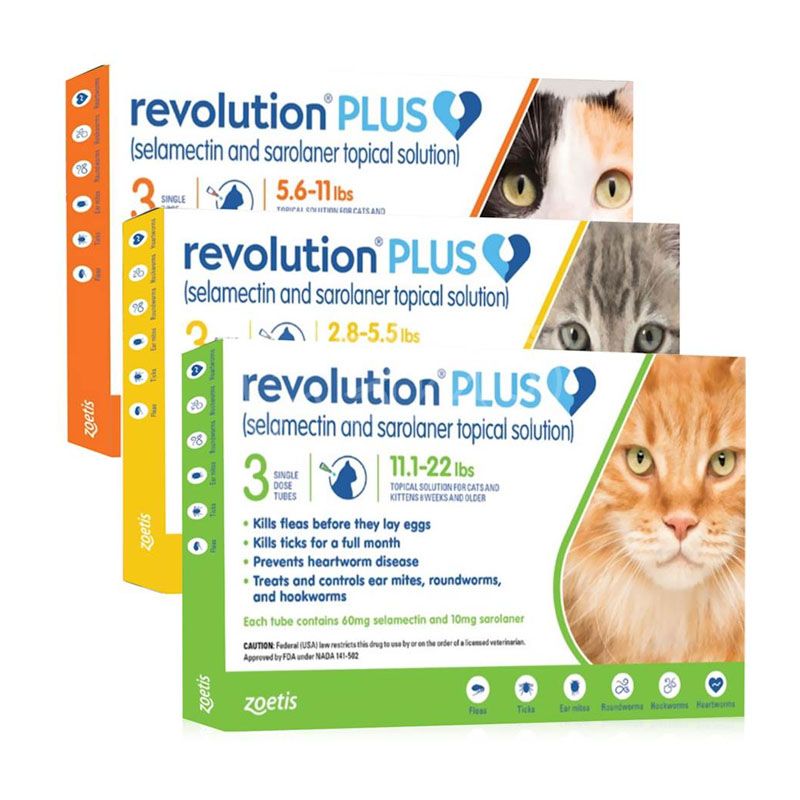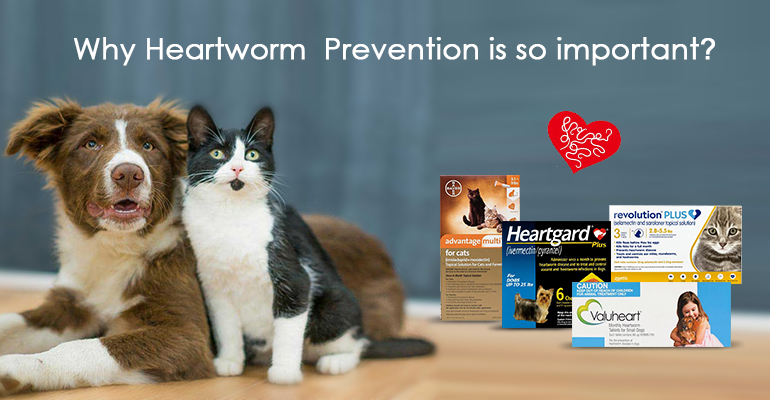Why Heartworm Prevention is So Important?
Most of us are now aware of the disease risk posed by mosquito bites. Mosquitoes can spread a variety of serious infections to humans, and most of us do everything we can to avoid being bitten and to prevent heartworm infection.
Even our pets are vulnerable to mosquito-borne disease, but unlike us, they are powerless to avoid getting bitten. Because serious illnesses like heartworm disease are spread by mosquitoes and afflict dogs and cats, we pet parents must take matters into our own hands to protect our pets.
What is Heartworm Disease?
Heartworm disease is a dangerous and potentially fatal condition in pets. It’s caused by heartworms, which are foot-long worms that reside in the lungs and hearts of infected pets, causing heart failure, severe pulmonary illness, and organ damage.
Most of the pets do not exhibit any signs of heartworm infection, which is why annual heartworm testing is essential. If the condition is serious enough, the following symptoms may appear:
- Coughing
- Lethargy
- Decreased Appetite
- Breathing problems
- Vomiting
- Loss of weight
What Makes Heartworm Disease Prevention So Important?
- Mosquitoes are numerous and everywhere!
- Heartworm disease can be transmitted to your pet by a single bite from an infected mosquito.
- Every year, about 1 in 200 dogs tests positive for heartworm disease.
- The treatment of heartworm disease is quite costly.
- It is possible that treatment will be painful.
- Most importantly, untreated heartworm illness is FATAL.
What Heartworm Preventative Options are Available?
Fortunately, there are a variety of heartworm preventatives available. To assist protect your pets; there are chewable pills, topical treatments, and even injections available. Some heartworm preventatives simply protect against heartworms, whereas others also protect against intestinal worms, fleas, and ticks. Your veterinarian should be your go-to resource for determining which products and plans are best for your pets. Your veterinarian will be able to recommend the ones that are best for your pet.
To ensure that your pet is properly protected throughout the year, advised preventative doses should be administered at the appropriate times. Even missing a dose by a few days can put your pet in danger of having a heartworm infestation.
Preventing infection in your pet on a monthly basis can help lower the chance of illness. Other worms, like roundworms, hookworms, and whipworms including heartworms, may be protected by various heartworm preventatives listed below.
Valuheart Heartworm Tablets
- Pack 0f 6 & 12
- For Small Dogs, Medium Dogs and Large Dogs

Heartgard Plus Chewables
- Pack of 6 & 12
- For Small Dogs, Medium Dogs and Large Dogsevolution Plus

Revolution Plus
- Pack of 3, 6 & 12
- For Small Cats, Medium Cats and Large Cats

Advantage Multi (Advocate)
- Pack of 3, 6 & 12
- For Small Dogs, Medium Dogs, Large Dogs and Extra Large Dogs

For further information, contact your veterinarian or see the particular product page.
Our recommendations:
Every year, have your dog or cat tested for heartworm disease.
The sooner your pet is diagnosed with heartworm disease, the greater its prospects of recovery. Because there are few early indicators of the disease, heartworm testing is vital for detecting the existence of heartworms. A simple blood sample from your pet is all that is required to test for heartworms. Cats and dogs have different testing techniques and timing. Dogs should be tested once a year as part of their yearly health exam. Testing is still necessary even if your dog is on year-round heartworm prevention, but it is always advisable to consult with your veterinarian. Heartworm infection in cats is more difficult to detect, therefore your veterinarian may use an antibody and antigen test, as well as an ultrasound or X-rays to check for the infection.
[Also Read] How to Recognize Heartworms in Dogs?
Every month, provide heartworm prevention.
Heartworm parasite control is important since heartworms can be so dangerous to pets. If your pet isn’t on a monthly heartworm preventative, the chances of developing this potentially fatal disease are much higher. A single heartworm-carrying mosquito is all it takes to infect your pet. Worst of all, adult heartworms can live in dogs for up to seven years, while they can live in cats for a few months to many years. Heartworm preventives must be administered on a regular basis to eradicate heartworms before they mature into adults. Since today’s heartworm treatments are also effective against other parasites, prevention is even more vital. Treatment or preventives you use for heartworm control may protect your pet from other intestinal worms and some can even be helpful at treating ear mites, ticks and fleas.
Bottom Line
Every pet parent must understand the necessity of heartworm prevention in order to protect their beloved pets from life-threatening infections. Heartworm preventatives protect against more than simply heartworm. The majority of heartworm preventives also include treatment for intestinal parasites like whipworm, roundworm, and hookworm, as well as other external parasites. Not only can these nasties cause major and costly health issues for your pet, but they can also be transmitted from animal to human. It’s also a good idea to have your veterinarian perform annual testing. Please make an appointment with your veterinarian for further information on heartworm disease.




